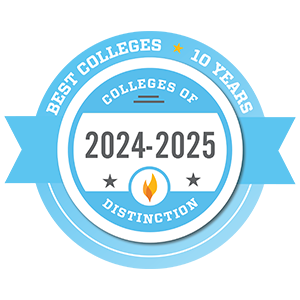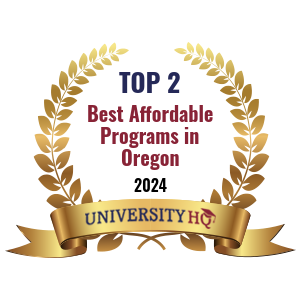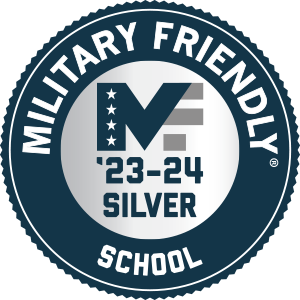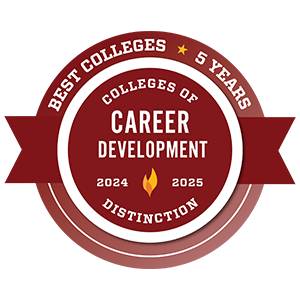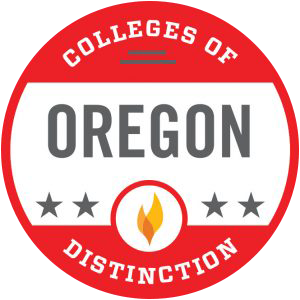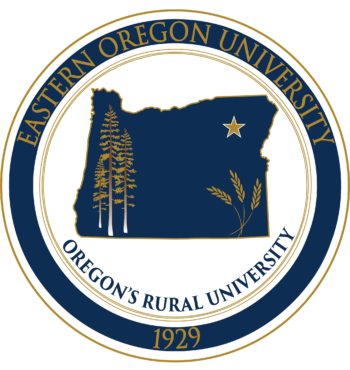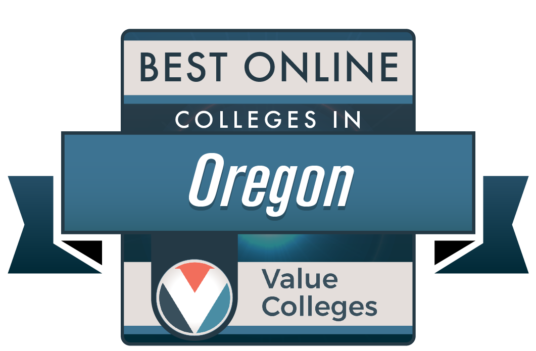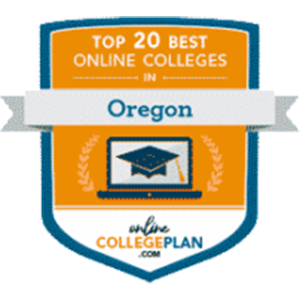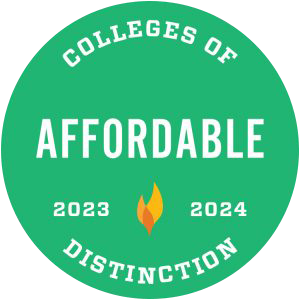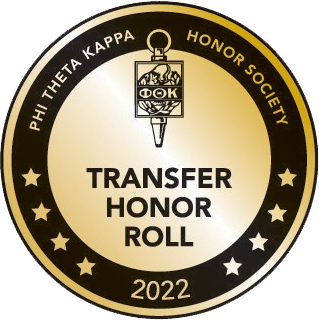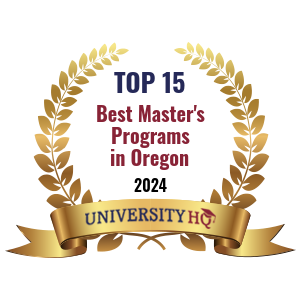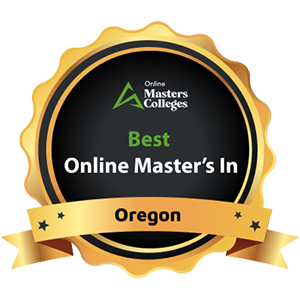Online Master of Science in Clinical Mental Health Counseling

Make Positive Change in the Health of Your Community
Synchronous Components
100% Online Coursework
Strive for Brave Spaces*
Learn More Today
Complete the form to learn more about this program.
- Duration 2 years
- Cost per Credit $559
- Credit Hours 90
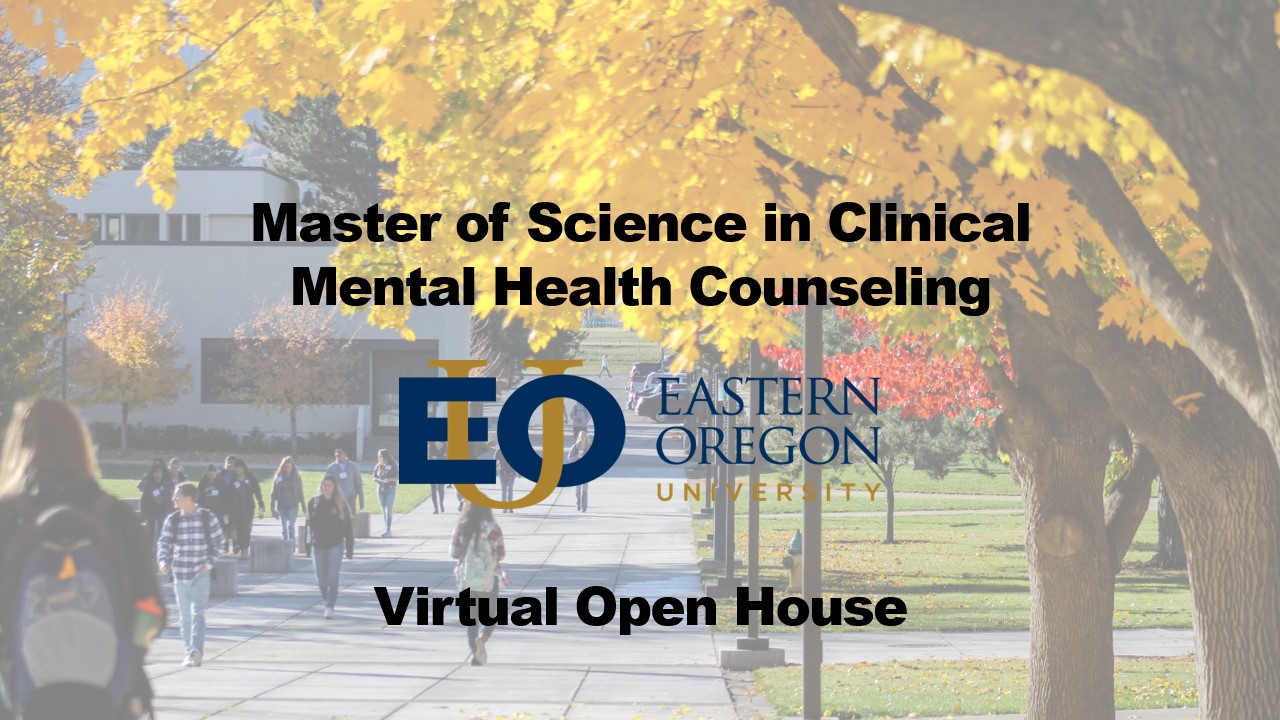
LIBERTY KYLE: OK. Hello and welcome to Eastern Oregon University’s Online Clinical Mental Health Counseling Virtual Open House. Today we will be going over a little background information about Eastern Oregon University.
We’ll also touch on benefits of being an online student. We’ll go over program details, admission process, deadlines, and contact information all for the online Clinical Mental Health Counseling Program today.
Before we get started, we’ll go through with introductions. My name is Liberty Kyle. I’m the director of online enrollment here at Eastern Oregon University, and I am here with two of our faculty members from our Online Clinical Mental Health Counseling Program, Dr. Hope Schuermann and Dr. Christine McNichols. Would you all like to introduce yourselves?
HOPE SCHUERMANN: Sure. Thank you, Liberty. Hi, I’m Dr. Schuermann. I’m the CMHC Program Director. And I’m so excited that we are here today to be able to tell you a little bit about a brand new program and a lot of exciting opportunities at Eastern Oregon.
CHRISTINE MCNICHOLS: And I’m Dr. Christine McNichols, and I am the Clinical Mental Health Counseling Clinical Placement Coordinator for the program, and I also welcome you to this presentation and so excited to tell you a little bit more about our program.
LIBERTY KYLE: OK, thank you both so much. Before we get into the program information, we’ll go over a little bit of Eastern Oregon University’s background. So Eastern Oregon University’s mission is to guide students through integrated high-quality liberal arts and professional programs that lead to responsible and reflective action in a diverse and interconnected world.
As an educational, cultural, and scholarly center, EOU connects the rural regions of Oregon to a wider world. Our beautiful setting and small size does help enhance the personal attention our students receive, while partnerships with colleges, universities, agencies, and communities add to the educational possibilities of our region and state.
We have an extremely generous transfer policy as well here at Eastern Oregon University. We do transfer up to 13.5 quarter credit hours or 9 semester credit hours specifically for the Clinical Mental Health Counseling Program. We also do have a very flexible and convenient modality with our online courses to help fit students in this nontraditional setting. We’ll go a little bit more into detail later on in this presentation as to how the Clinical Mental Health Counseling Program fits that flexibility.
And then also, EOU strives to help students succeed academically while completing programs. So we do provide one-on-one advising and support to help you achieve that academic success while here at Eastern Oregon University. Great. I’ll hand it over to Hope now to go over the Master of Science in Clinical Mental Health Counseling.
HOPE SCHUERMANN: Great. Thank you, Liberty. So as I said earlier, the Master of Science in Clinical Mental Health Counseling is a new program at Eastern Oregon. It is fully online, and through your coursework and your clinical experiences, you will receive all of the educational requirements that you need for licensure in almost all of the 50 states. So 41 of the 50 states in the US.
And all of our classes are fully online through asynchronous and synchronous work, so there is no travel for residencies which is something that is quite unique about our program. And I think Dr. McNichols is going to take this slide.
CHRISTINE MCNICHOLS: Yes. So just to give you a little background about what counselors do and specifically what clinical mental health counselors do, the American Counseling Association defines counseling as a professional relationship that empowers diverse individuals, families, and groups to accomplish mental health, wellness, education and career goals.
And so in counseling, we focus on holistic treatment and wellness, and focusing on strength-based approaches to helping people. So one thing that’s very different about counselors in particular is that we are very focused on personal growth and development, and also the prevention of mental health concerns before they arise or before they become problematic.
So in this program, going through this program, you will learn basically how to work with a wide range of issues and concerns. And really to be trained as what we call a generalist, which means you can work with individuals, groups, couples, families across the whole spectrum of life concerns.
So some of the things that we commonly work with are life transitions and stress, relationship concerns, anxiety, depression, substance abuse, of course, grief, and even career. So we have a long history, of course, with career counseling. And you’ll learn more about that all in the program.
But one thing about this field in particular is that across the nation, even in urban areas, there is a great need right now for mental health counselors. So the demand is greater than the current workforce that can fill the demand. And so no matter where you are in the country, this is an amazing field and career to go into at this point as more and more people become interested on mental well-being.
HOPE SCHUERMANN: So a little bit about the program specifically. As I mentioned earlier, all of our coursework is online. Some of that will be synchronous and some of it will be asynchronous, and that will vary from class to class. However, you do not have to travel.
Our credit hours are a flat rate of 515 per credit hour, and it does not matter where you live in the country, whether you’re an Oregon resident or not, it is the same rate. We are a 90-quarter credit-hour program, which is equivalent to 60 semester credits, which is the standard needed for licensure in almost all states.
We do not require a GRE or any other type of testing for admissions. As I mentioned earlier, we do not require an in-person residency, so you will not have to travel to EOU at any point. And if you go full-time and follow the cohort model, you can finish the program in two years.
The program does include three terms of clinical experiences, and those include practicum, internship, and advanced internship. And we will help you find a site local to you so that you should not have to travel too far to complete those hours as well. So in a nutshell, that is what the program looks like, and we’ll talk more about the admissions requirements in just a few slides.
So a little bit about your course of study at EOU. These are the program outcomes, and I won’t read them to you, but you can find them here and you can also find them on our website. These are covered through at least one main course, but also covered through other courses throughout the program, and they meet all of the accreditation requirements for counseling programs.
CHRISTINE MCNICHOLS: So the career outlook for clinical mental health counseling is very promising right now. So employment of mental health counselors is projected to grow 22% from 2021 to 2031. So that’s pretty significant if you look at different fields across the spectrum.
So there’s a steady demand for counselors as I mentioned earlier to work in a variety of settings, and here are some of the settings listed here that you can see that counselors commonly work in.
Now one thing that’s unique about a degree, a master’s degree in counseling is that you can not only provide counseling services to individuals, couples, families, or groups, which I’m sure many of you, that’s probably what you’re wanting to do, But you can also serve– be trained as a clinical supervisor. You can become a program director at pretty much any of these sites. You can work as a consultant. You can participate in research and program evaluation.
You can also be a crisis responder or volunteer and even be deployed to work in various parts of the nation whenever crisis happens. And also become professional advocates. So there’s a lot of various roles that mental health counselors can play once you’re fully licensed and you become a professional counselor. So it’s a very diverse field, and I personally think it’s one where it’s very hard to get bored because there’s lots of different things that you can do.
So now I just want to tell you a little bit more about the practicum and internship process. I know oftentimes that is a question that potential applicants might have. So students enter into the clinical experience after the completion of their core coursework. So the main body of classes that you’ll be taking in the program.
And the clinical experience is divided into three courses– the practicum course, the internship course, and the advanced internship course. And during those courses, you’ll not only participate in the actual course, but you will also be out working in your local communities under the supervision of what we call a site supervisor.
So this is someone who is an advanced counselor in the field who will be supervising you, mentoring you, and guiding you in the process of becoming a counselor. So this is probably one of the most challenging periods of the program, but also the most exciting and rewarding because you get to learn so much and you get that hands-on experience and practice.
Now common practicum and internship placements can be at hospitals, nonprofit agencies, community agencies, schools, and even private practice settings.
So you’ll be out working in the field, but you also be working with your classmates and your instructor, your practicum internship instructor by doing what’s called group supervision, which will meet once a week for a few hours to discuss your cases and talk about issues relevant or important in the field of counseling, and also prepare for post-licensure or licensure post-graduation.
So we’ll get into our requirements and stuff more, so don’t stress out about that, but just to give you an idea, for practicum, it’s 100 hours, and that’s divided into direct hours and indirect hours. And then for both of your internships, it’s 300 hours, and those are also divided into direct hours, which are direct client contact and indirect hours.
And of course, as you enter the program and move through, you’ll be hearing lots more about this information, and I’ll be there to help you with this process as far as transitioning to the clinical experience, finding a placement, and then helping it hopefully be a very successful and rewarding experience for you.
HOPE SCHUERMANN: So we thought we would answer some questions that we have been asked by applicants for the program, and the first one, is the Clinical Mental Health Counseling Program accredited?
This question has multiple answers. So the first answer is that we are accredited by the regional college accreditor, which is the Northwest Commission on Colleges and Universities for the State of Oregon. A lot of folks will also ask if we are CACREP-accredited, which is the accreditor for counseling programs.
We are not currently accredited by CACREP because you cannot seek accreditation until you have graduates from the program. Once you have graduates, you can apply for our accreditation and the accreditation can be backdated by, I believe, 18 months. And so that is a process that we plan to go through once we have met all the criteria for it.
So the second question here, will I need to travel for the program? You will not need to travel for any of your educational components of this program. As far as traveling for practicum or internship, that will be a conversation that you’ll have with your advisor and also with Dr. McNichols around finding a site that hopefully will be convenient for you to travel to and local to where you live.
So the only travel that you might want to consider is we’ll actually will have an in-person graduation when you graduate, and so you could choose to travel to that if you’d like to.
Can I work during the program? So this is a very personal question, and it’s often up to the student to decide if they want to work or not work. Many students will work during at least the beginning of the program when they’re just taking classes. That can become a little more difficult once you enter clinical experience depending on where your site is and what hours you are working there.
So the answer to this question is it’s really up to you, but as your faculty and your advisors, we will be here to talk with you, to advise you, to help you as much as we can around what works for you as far as working and going to maybe part-time or full-time depending on how often you are working.
Which is a good segue way into, is the program full or part-time? And the answer to that question is both. We are very flexible. We will work with you. We do have a cohort model, and if you follow that, you can graduate in two years, which many students are interested in because the sooner that you graduate, the sooner you can start practicing and earning a living and not have student loans, which is also nice.
So you can go full-time and graduate in two years, but if you’d like to take your time or if you are also working full-time, we have a part-time option that we will work with you to tailor to your needs.
And then finally, what are the synchronous learning requirements for the program? This is a good question because one of the ways that we are able to not have residences that require travel to campus is through having more synchronous learning requirements.
And so almost every term, you will have some classes that either meet weekly or two or three times over the term for a synchronous learning experience in addition to practicum and internship classes where you will meet weekly in a synchronous meeting for group supervision.
Which is a requirement for accreditation, but also a really important part of the learning process while you’re doing your clinical experiences. So there will be multiple synchronous learning requirements. However, they are in lieu of travel.
LIBERTY KYLE: OK. Thank you so much, Hope. I’m going to go over the application requirements next. You’ll be working with the team of enrollment counselors that will assist you through each step of the application process, but just to give you all more of an idea of what’s expected once you start applying to the program.
So you’ll fill out the application itself. You’ll submit official transcripts from the regionally-accredited institution stating conferral of a bachelor’s degree or higher with an accreditor that is recognized by the US Department of Education with a minimum of a 3.0 GPA preferred. You may apply with a lower GPA for consideration as well.
Transcripts, you must submit all previous official transcripts from all prior universities. We do have a form that we can send out to students, and in most cases, we can submit those official transcripts on your behalf. In some cases, the institutions are student-only, but we would let you know that as well and provide assistance in requesting those documents.
Additional requirements include two completed essays using program prompts, which we’ll go over here in the next two slides, and then also three letters of recommendation.
The first essay prompt is going to be about becoming a counselor. These are the questions that you’ll have for the first essay. So going over where does your desire to become a counselor come from? What skills do you already have that will assist you in being successful in an online education program? What would you like to do with your graduate degree? And feel free to include the population and setting you believe you would like to work with.
And then how will attending this clinical mental health program at Eastern Oregon University assist you with meeting your goals? And please speak to the university and program values and mission.
The second essay will focus more on yourself as a counselor. So you’ll go over openness to feedback from instructors as an essential component for growth during a graduate counseling program. You’ll describe a time when you received feedback that was difficult for you to hear. And then from that feedback, what were your initial reactions and how were you able to work through those initial reactions in order to act upon the feedback given?
You’ll then describe something you have recently done to further your or others understanding of privilege and systemic oppression in our society. This could be a conversation, book, activism, advocacy, or something else. In what ways have you applied your learning? And then finally, is there anything else you would like us to know about you in consideration of your application?
If you have any questions around these essay questions, feel free to reach out to your enrollment counselor. We’ll also be providing contact information at the end of this presentation for you to contact faculty directly as well if you have run into any questions while completing these essays.
CHRISTINE MCNICHOLS: The one question that often comes out when people are looking at master’s degree programs is the financial piece. So how do I pay for this education? How do I pay– is there help for this? And the answer is yes.
So EOU actually has a wonderful website through the Financial Aid Office. If you’ll click on the Scholarships tab within the website, there is a list of various opportunities and scholarships that are available to you, and they’re specific for– or they include undergrad, but they do include master’s degree programs.
So I listed some of the ones that I came across that you are eligible for our program. So some of the ones are local to EOU, but some of them are more national or even international funds that are available. So we encourage you to look at that and see if any of those scholarships would apply to you in your situation because it’s a wonderful benefit.
And some other options that master’s degree people in clinical mental health have is loan forgiveness programs. So this basically means that you completed your master’s degree and you took out federal loans to do that, but the loans are forgiven.
So these require usually a commitment of working in a certain area for a designated specific time. Usually it’s between– the ones I’ve seen is usually between two and five years. And then at the end of that time, the loans that you took out are forgiven.
So counselors are eligible for this benefit. The main office that does this is the Health Resources and Service Administration, HRSA. There’s also the Public Federal Student Aid Public Service Loan Forgiveness Program, and then there are some that are state-specific.
So the ones in Oregon are the Oregon Loan Repayment Program, the Oregon Office of Rural Health, and then lots of different states offer similar programs. So I encourage you to look at these.
And you would be surprised how many areas or how many agencies are actually eligible. Some of them are in rural settings, but some aren’t, because some are in settings where they’re considered health professional shortage areas. So please look into those, this is a wonderful benefit to counselors and something that we would definitely recommend.
LIBERTY KYLE: OK. So next steps. If you feel this program is a great fit for what you’re looking for, you will start with the application. You’ll submit the application and a $50 application fee. And if you haven’t already spoken with an enrollment counselor before starting the application, the submission of your application will trigger an enrollment counselor to connect with you as well and assist you in sending those official transcripts out.
And then once you’ve completed your application, submitted, we’ll also provide you resources of scholarships, also what was mentioned on the previous slide in regards to scholarship opportunities, all those will be discussed, and if you need assistance with looking into those further, again, you can reach out to your enrollment counselors or the additional contacts that we’ll share here in a little bit to help you with applying for those scholarships.
And before you get started on your application, just so you know, these are our upcoming application deadlines for the 2023-2024 school year. So you’ll want to make sure to keep these in mind. This is the last day to apply for the fall term, winter term, and spring term that’s coming up.
You will be able to find the actual start date for these terms on our academic calendar that’s on the EOU website, but also your enrollment counselors will be sharing those start dates as well to see if that fits in your timeline for starting the program.
But make sure to write these deadlines down so you’re on top of that depending on which term you want to apply for so you can make sure to meet that deadline and get started as soon as possible.
And then also, you can find Eastern Oregon University on social media platforms. So make sure to follow us and stay up to date on the latest and greatest from EOU and all things that EOU is providing to their students.
And then finally, as I mentioned, if you have any questions, these are all the contacts that you can reach out to. You have many different resources for support while going through the application, as well as the programs to take advantage of it. Make sure to write these contact information down.
Again, your enrollment counselor will be in touch with you. They’ll most likely be sending you this contact information as well, so you have that to save. But the email and the phone number for our faculty is the same across the board.
So cmhc@eou.edu is a shared inbox. And then you can call the office number at 541-962-3557. And then if you want to get in touch with our Online Enrollment Team, the direct number is 855-805-5399. And then our shared inbox for the Enrollment Team is onlineadmissions-group@eou.edu.
Thank you all for joining us today, and we look forward to speaking with you soon. Have a good day.
View Our Latest Virtual Open House
Learn about the Master of Science in Clinical Mental Health Counseling program!
Form Your Unique Identity as a Professional
As a student in Eastern Oregon University’s online Master of Science in Clinical Mental Health Counseling program, you’ll have the opportunity to work with expert faculty and earn the skills necessary to pursue a fulfilling career in counseling. By engaging in cutting-edge courses, you’ll cultivate your own professional identity and meet the full licensure requirements for most states.
While Eastern Oregon University’s online Master of Science in Clinical Mental Health Counseling program is designed for you to meet the educational and clinical experience requirements for counseling licensure in Oregon and most states, this program is not currently accredited by CACREP. Our program will apply for CACREP accreditation as soon as it is eligible, which is upon graduation of the first cohort, estimated for August 2025.
Eastern Oregon University’s Clinical Mental Health Counseling program is committed to recruiting and supporting diversity within the program and the mental health profession. We actively build a community in which dialogue, respect, care, and dignity are at the forefront. Students, faculty and stakeholders of all ethnicities, genders, gender identities/expansion, faiths, ages, affectional orientations, ability statuses, socioeconomic backgrounds, cultures, regions and nationalities are welcomed into and celebrated in the EOU CMHC program. We strive to have brave spaces* within our classrooms, mentoring, advising, and counseling sessions. We are actively anti-racist and promote social justice through intentional decolonization of the curriculum. Faculty and students are committed to teaching and upholding culturally sensitive, respectful and inclusive practices from the classroom to the counseling room.
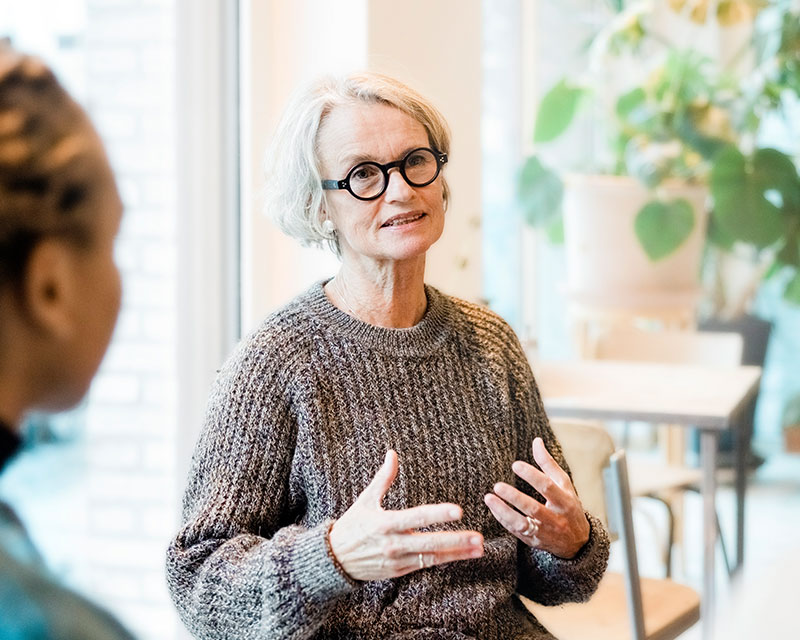
Prepare for In-Demand Mental Health Counseling Careers
Graduating with an online master’s degree in clinical mental health counseling will prepare you to pursue a wide range of careers, including work in mental health, student services and career guidance settings. Our program includes three terms of practicum, internship and advanced internship at a site that provides counseling, which we will help you secure, to ensure you are learning the latest in a real-world application.
Explore CareersThe Latest in Mental Health Counseling
20 total courses
90 total credits
EOU’s faculty are here to give you the attention you need in an environment designed for practicality. The online courses are designed to give you the most relevant and up-to-date training to achieve success.
Course Highlights:
- COUN 500 Introduction to Counseling and Ethical Practice
- COUN 520 Social and Cultural Diversity in Counseling
- COUN 530 Counseling and Helping Relationships: Residency I
- COUN 550 Assessment and Evaluation Techniques in Counseling
Admission Details
Start Your Application Today
No GRE required
No prerequisite coursework
To apply to EOU’s online Master of Science in Clinical Mental Health Counseling, you’ll need:
| Bachelor’s degree from a regionally accredited four-year college or university |
| Cumulative undergraduate GPA of at least 3.0 on a 4.0 scale is preferred. May apply with a lower GPA for consideration |
| Official transcripts for all previously attended undergraduate and graduate institutions |
| Two completed essays using program prompts |
| Three letters of recommendation |
Tuition and Aid
Affordable Tuition for a High-Quality Degree
$558.50 Per Credit
$50,265 Total Tuition
EOU is committed to offering affordable, competitive tuition. Speak to an enrollment counselor to discover the multiple ways to finance your degree.
Learn MoreLearn More About Your Financial Aid Options
Your education is an investment in your future. We take your commitment seriously and are here to support you in finding ways to pay for your degree.
Options to consider are:
- Loans
- Scholarships
- Employer Benefits
What You’ll Learn
During your course of study at EOU, you’ll learn about a wide range of mental health counseling topics such as developmental theory, cultural diversity, diagnostic systems and more. The up-to-date curriculum ensures you’ll be ready to find a career that works for you upon graduation.
Program Outcomes
- Professional counseling orientation and ethical practice: To train counseling students that can demonstrate and utilize ethical and legal standards across counselor roles, responsibilities and identity to develop a strong counselor identity
- Social and Cultural Diversity: To train counseling students that can demonstrate and utilize social and cultural contexts within the treatment of individuals, couples and families through culturally competent counseling practice
- Human growth and Development: To train counseling students that can demonstrate and utilize aspects of human development across the lifespan and within the counseling process
- Career development: To train counseling students that can demonstrate and utilize career development theory while navigating the interrelationships between work and mental well-being
- Counseling and helping relationships: To train counseling students that can demonstrate and utilize the characteristics, behaviors and counseling skills of counselors to develop therapeutic, helping relationships
- Group counseling and group work: To train counseling students that can demonstrate and utilize the dynamics, strategies and conditions associated with effective group work
- Assessment and testing: To train counseling students that can demonstrate and utilize assessment data to diagnose and treat mental and emotional disorders
- Research and program evaluation: To train counseling students that can demonstrate and utilize evidence-based research, needs assessment and program evaluation to inform counseling practice
- Clinical mental health counseling: To train counselors that can demonstrate their professional identity and roles within service delivery and can utilize intake practices, diagnostic criteria, treatment modalities, treatment planning and client advocacy to assess and develop interventions and measure outcomes
- Professional practice: To train counselors that can demonstrate, utilize and integrate knowledge and skills through culturally and developmentally relevant strategies for best practice through supervised practicum and internship experiences
What It’s Like to Study Online
Earning your degree online from Eastern Oregon University is a great opportunity because there are no on-campus requirements. You will have access to the same professors, content and opportunities as on-campus students while learning online in a creative digital format. Our professors work on campus and are experts trained to deliver innovative, engaging online education.
Explore the Online ExperienceTop Recognition for EOU Online
Earn a quality education online from a highly-respected and awarded institution. Eastern Oregon University’s degree programs have received considerable recognition such as Colleges of Distinction, Value Colleges, College Choice and Military Friendly.
Frequently Asked Questions
Here are the answers to a few frequently asked questions about this program.
Yes, quality online counseling programs maintain rigorous accreditation standards. Eastern Oregon University is regionally accredited by the Northwest Commission on Colleges and Universities (NWCCU), ensuring that your degree meets high educational standards and is recognized nationwide. Additionally, Eastern Oregon University’s online Master of Science in Clinical Mental Health Counseling program is designed for you to meet the educational and clinical experience requirements for counseling licensure in Oregon and most states, this program is not currently accredited by CACREP. Our program will apply for CACREP accreditation as soon as it is eligible, which is upon graduation of the first cohort, estimated for August 2025.
EOU has designed a straightforward admissions process to help you begin your counseling career. To apply for the online MS in Clinical Mental Health Counseling program, you’ll need to provide transcripts from a regionally accredited college or university, a GPA of at least 3.0, two essays, three letters of recommendation, and the application fee.
Graduates of EOU’s online Master of Science in Clinical Mental Health Counseling program are prepared for diverse and rewarding careers in the mental health field. Beyond direct counseling services, you can pursue roles as a clinical supervisor, program director, consultant, crisis responder, or professional advocate. Explore career opportunities to learn more about your professional pathways.
This program does not require clinical hours.
EOU’s online Master of Science in Clinical Mental Health Counseling program requires no on-campus attendance or travel to the university. All coursework is delivered 100% online through a blend of synchronous (real-time) and asynchronous (self-paced) learning formats. You’ll complete your practicum, internship, and potentially an advanced internship at a counseling site in your local community.
EOU’s program includes 700 total clinical hours divided across three supervised field experiences: Practicum (100 hours), Internship (300 hours), and Advanced Internship (300 hours). These clinical experiences occur during the final three terms of the program after you complete your core coursework. The practicum requires 40 direct client contact hours and 60 indirect service hours, while each internship requires a combination of direct and indirect hours working with clients under supervision. Learn more about the individual requirements on our courses page.
